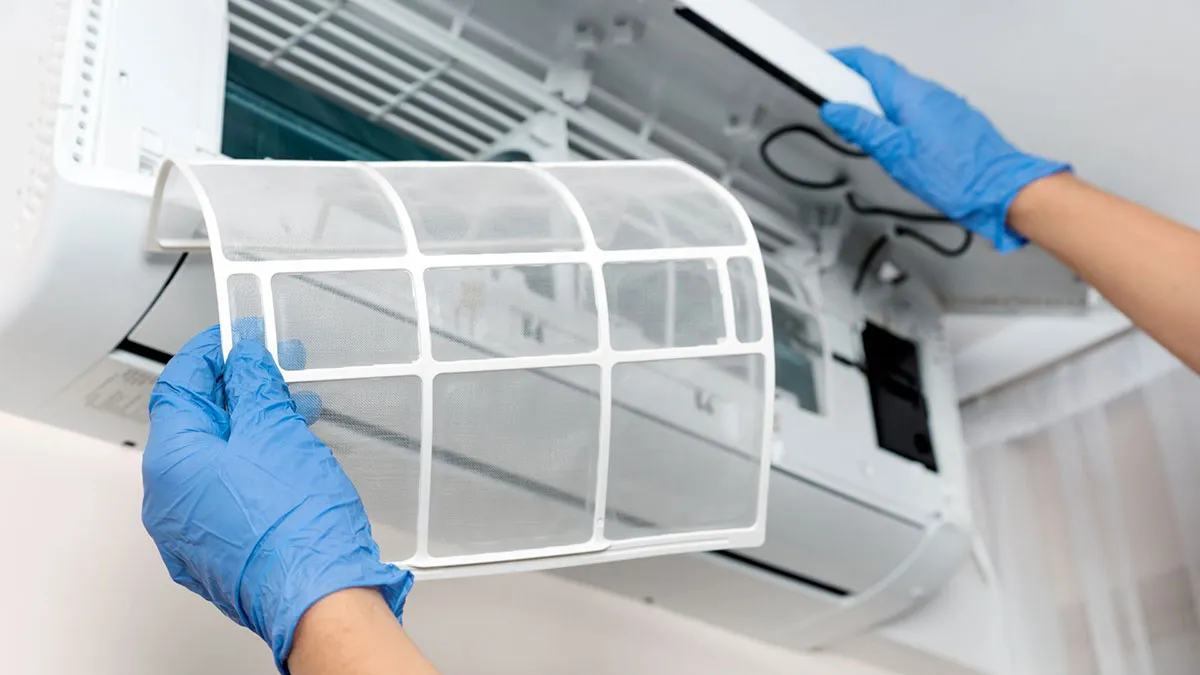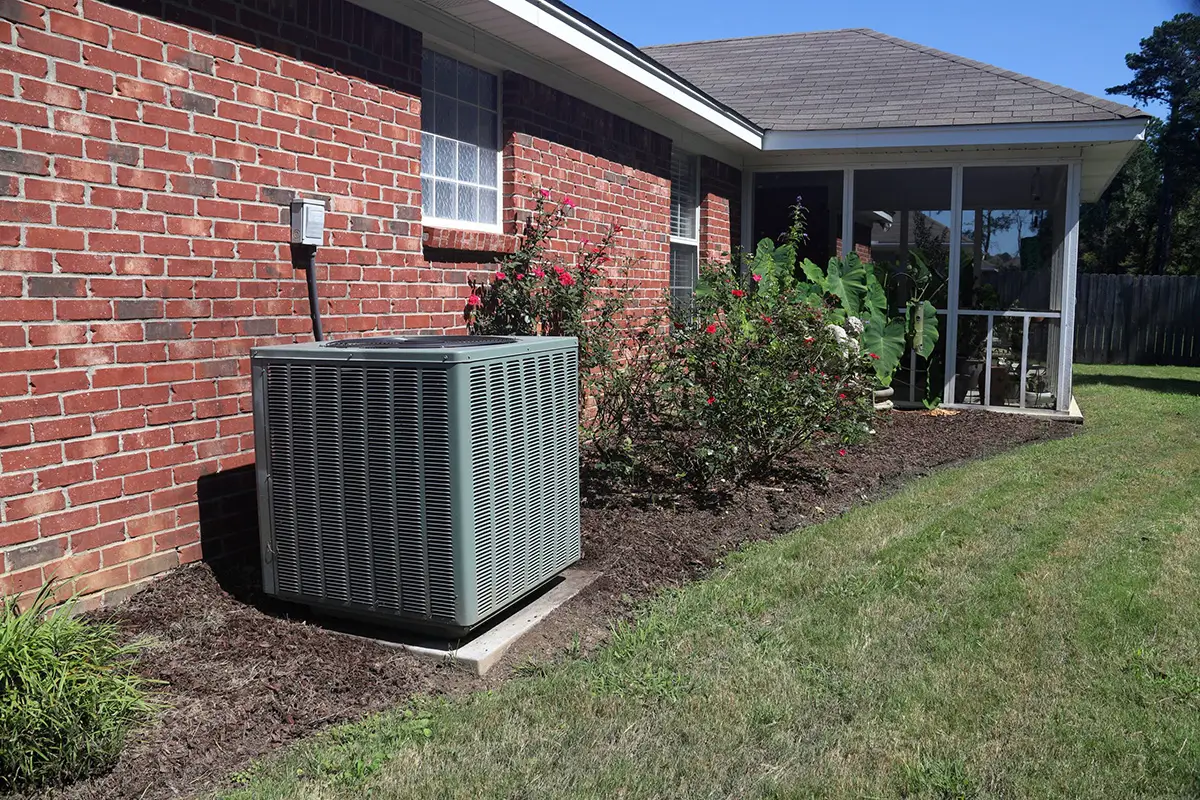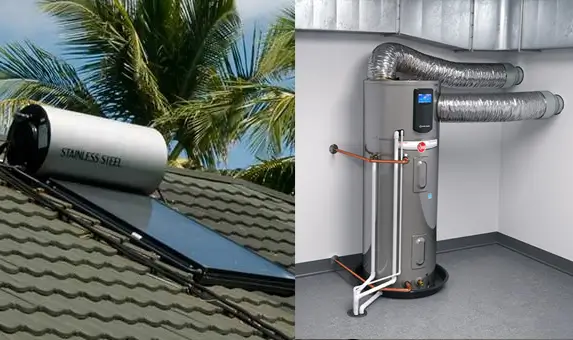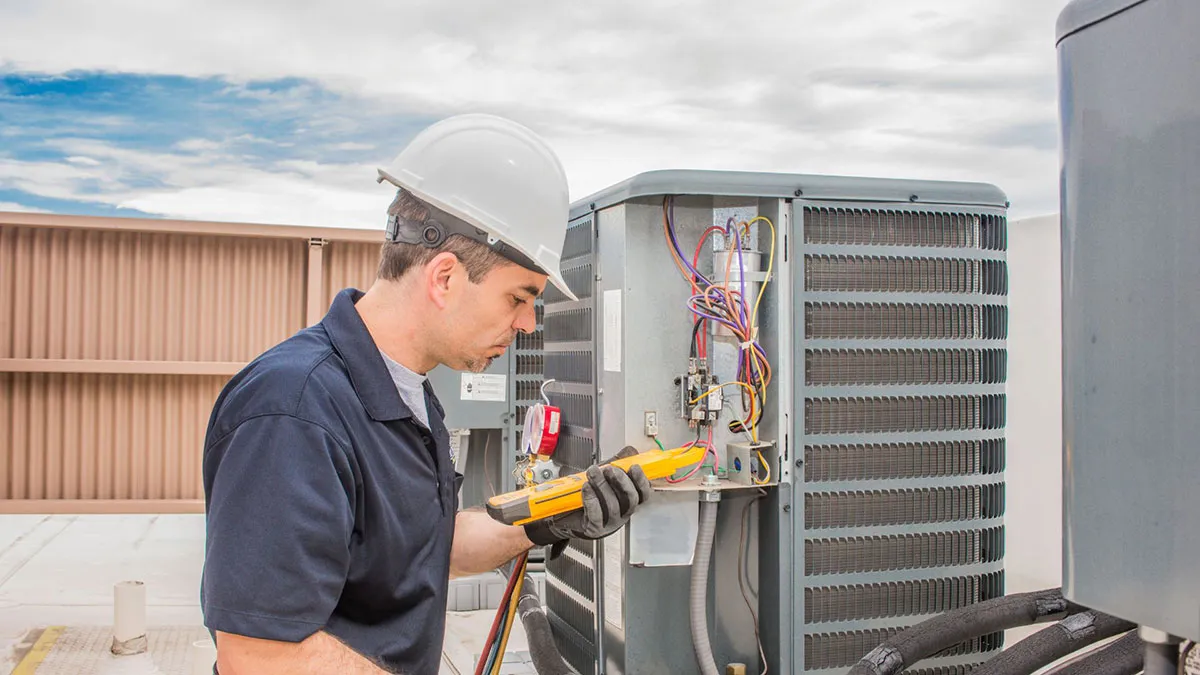Keeping your air conditioning system running smoothly in Hawaii’s hot, humid climate is crucial. One of the most important things you can do is regularly replace the air filters. When filters get clogged with dust, dirt and debris, it forces your AC to work overtime, reducing efficiency and spiking your energy bills.
This blog post covers everything you need to know about when and how often to swap out those old filters. We’ll explain exactly what air filters do and the different factors that determine how frequently they need replacing. You’ll get general guidelines on replacement schedules based on usage levels and environmental conditions around your home. We’ll also go over the benefits of staying on top of filter changes – and the potential consequences if you let this simple maintenance task slide. Plus, some Hawaii-specific tips to help keep filters fresh and your AC humming all year.
With the right filter replacement routine, you can maximize energy efficiency, prevent costly repairs, and extend the lifespan of your cooling system. Let’s dive in!

What Do Air Conditioning Filters Do?
Think of your AC’s air filter as the lungs of your cooling system. Its main job? Trapping all those nasty particles like dust, dirt, dander and other allergens before they can circulate through your home’s air.
As the AC pulls in return air from your rooms, it gets pulled through the filter first. The filter itself is designed with a super dense mesh or pleated material that lets air flow through while catching those microscopic contaminants. If you didn’t have a filter in place, just imagine all that gunk building up on the AC components like the evaporator coils and blower fan over time. Not a pretty picture!
When a filter gets clogged up, it forces the blower to work way harder to suck air through that dense filter media. It also restricts airflow over the coils, making it tougher for them to absorb heat effectively. The harder your system has to work, the more energy it wastes and the higher those utility bills climb.
But air filters aren’t just about protecting the AC equipment. They also play a huge role in keeping the air you breathe at home clean and healthy. Did you know indoor air can actually be 2-5 times more polluted than outdoor air, according to the EPA? All those microscopic particulates like dust, smoke, pet dander and mold spores can trigger allergies, asthma and respiratory issues when recirculated without a filter.
The denser the filter media, the more of those tiny particles it can trap from your air. But there’s a tradeoff – the denser it is, the more airflow resistance as it gets dirty over time. That’s why it’s so crucial to swap filters regularly before they get totally gunked up. Most homes use basic fiberglass or pleated filters that only last a few months.
By keeping those filters fresh, you’re reducing strain on your AC parts, boosting energy efficiency, and helping ensure your family can breathe easier indoors. Up next, we’ll look at what factors determine how often you actually need to replace those filters.
Factors That Influence How Often You Should Replace Filters
There’s no one-size-fits-all answer for how often to replace your air filters. The optimal timeline depends on several variables specific to your home and usage patterns. Here are the key factors that determine filter replacement needs:
Home Size and HVAC System
Larger homes with bigger HVAC systems simply circulate more air volume. That means the filters get dirtier faster compared to a smaller home or system. Similarly, if you have multiple returns and filters throughout the house, each individual filter won’t clog as quickly.
Number of Occupants/Pets
The more people and pets in the home, the more particulates get circulated through the air. Pet dander, hair, and dirt/dust tracked in from outside are all captured by the filters. A house with multiple humans and furry friends will need much more frequent filter changes.
Indoor Air Quality Needs
If anyone in the home has allergies, asthma or respiratory issues, you’ll want to change filters on the more frequent side. The same goes for homes in areas with poor outdoor air quality and high pollution levels. Denser filters may be required to properly clean the air.
Filter Type and Quality
Not all filters are created equal. Cheap fiberglass filters need changing every 1-3 months. Higher-end pleated filters can go 6 months or longer. And high-efficiency HEPA filters may only require annual replacement. But they also restrict airflow more when dirty.
HVAC Usage and Runtime
If you run your AC system constantly during summer’s peak heat, the filters will clog faster versus infrequent usage. Similarly, if you run the fan continuously for air circulation, that also shortens filter life.
Environmental Factors
Homes in areas with heavy dust, smog, wildfires, construction nearby or other environmental pollutants will need to change filters more often to keep up. Seasonal changes like high pollen counts in spring can also impact replacement needs.
As you can see, there are lots of variables at play when it comes to filter replacement frequency. Up next, we’ll cover some general guidelines to follow based on typical situations. But keep these key factors in mind for your specific home’s needs.
General Guidelines for Replacing AC Filters
While there’s no universal one-size-fits-all schedule, here are some general guidelines on how often to change AC filters for typical situations:
For basic fiberglass panel filters:
- Single person home with no pets or allergies: Every 6-12 months
- Average home with a couple people and maybe a pet: Every 3-6 months
- Larger home with multiple occupants/pets: Every 2-3 months
- If anyone has respiratory issues/allergies: Every 2 months
For higher-end pleated filters:
- Single person home with no pets/allergies: Every 9-12 months
- Average home: Every 6-9 months
- Larger home with multiple occupants/pets: Every 3-6 months
- If anyone has respiratory issues/allergies: Every 2-3 months
For high-efficiency HEPA filters:
- Can potentially last 6-12 months in lower occupancy homes
- May only need annual replacement in ideal conditions
- But should be changed every 3-6 months for larger homes/allergies
No matter what type of filter, you’ll want to check them monthly and change whenever you notice:
- Visible dirt/dust buildup on the surface
- The filter looks grayed or discolored
- You can’t see light through the filter material
- There’s an obvious musty odor coming from the filter
It’s also a good idea to change filters at the start of peak cooling seasons like summer. That way you’re running with fresh filters when HVAC usage is highest.
While replacing filters on the early side is ideal, going too long without changes can have major consequences – which we’ll cover next. The bottom line is don’t let those filters go neglected! A simple monthly check keeps your system and indoor air quality in top shape.
Benefits of Regular AC Filter Replacement
We’ve covered what air filters do and some general guidelines on when to swap them out. But why is keeping up with regular filter replacements so important? There are actually quite a few major benefits you’ll reap by staying on top of this simple maintenance task:
Improved Energy Efficiency
As filters get clogged up with dust and gunk, they drastically restrict airflow through your HVAC system. This puts extra strain on the blower fan as it has to work harder to pull air through that dense filter material. It also reduces airflow over the evaporator coils, decreasing their heat absorption abilities.
The harder your AC has to work, the more energy it wastes in the process. According to the Department of Energy, replacing a dirty filter can lower your air conditioner’s energy consumption by up to 15%! Over the course of a summer, those savings really add up.
Longer HVAC Lifespan
All that extra strain from overworked components means more wear and tear on your AC system. The blower motor, compressor, coils and other parts will deteriorate faster when constantly running on overdrive. This can lead to more frequent breakdowns and costly repair bills.
Regularly changing filters helps your HVAC equipment operate at peak efficiency without undue stress. This allows all the components to maximize their expected service lifespan. Extending your system’s life by even just a couple years makes filter replacements more than worth it.
Improved Indoor Air Quality
According to the EPA, indoor air can be 2-5 times more polluted than outdoor air. Those trapped air filters are the main line of defense against recirculating dust, pollen, pet dander, smoke particles and other allergens through your home.
When filters get clogged, particulate levels spike as those contaminants get pumped back into your living spaces. This can exacerbate allergy and asthma symptoms for sensitive individuals. It also allows more microbes and bacteria growth that impacts overall air quality.
By swapping filters regularly, you ensure cleaner, fresher air for your family to breathe. This benefit alone makes replacements well worth it for health reasons.
Fewer Repair Needs
That extra strain from overworked components leads to premature breakdowns over time. Frozen evaporator coils, compressor burnout, and blower failures can often be traced back to airflow issues caused by dirty filters. Nipping that problem in the bud saves you from costly AC repair bills down the road.
Consistent Cooling Power
As airflow becomes restricted, your system’s cooling output will suffer. You may notice warm air blowing from vents, uneven temperatures room-to-room, and the AC constantly running yet failing to keep up. Keeping filters clean ensures your system can do its job properly.
Lower Utility Bills
Between that wasted energy from inefficient operation and the AC constantly running to overcome airflow issues, your monthly costs skyrocket. Changing filters every few months can cut cooling costs by up to 15% according to energy.gov.
As you can see, the benefits of regular filter changes are extensive – from energy savings to air quality to prolonging your HVAC system’s life. When you consider the low cost of filters themselves, maintaining this simple routine is a no-brainer for any smart homeowner.
Consequences of Not Replacing Your AC Filters
We’ve covered all the great benefits that come with routinely swapping out those old AC filters. But what happens if you slack off and let them go for too long? Neglecting filter replacements can seriously impact your cooling system’s performance – and your wallet. Here are some of the major consequences you could face:
Decreased Energy Efficiency
As filters become caked with dust and debris over time, they put ever-increasing strain on your AC system. That blower fan has to work overtime trying to pull air through the clogged filter material. Less airflow also means reduced heat absorption by the evaporator coils.
According to the U.S. Department of Energy, a system operating with a dirty filter can use up to 15% more energy due to this wasted effort. Those higher utility bills each month really add up over the cooling season!
Potential System Breakdowns
All that extra stress and strain from overworked components isn’t just wasting energy – it’s also causing excessive wear and tear. When your AC has to run for longer periods trying to compensate for that airflow restriction, it puts major strain on parts like the:
- Compressor
- Blower motor
- Condenser coils
- Evaporator coils
If left unchecked, this can eventually lead to breakdowns and failures of these expensive components. Suddenly you’re on the hook for costly repairs or even full system replacement way ahead of schedule.
Reduced Cooling Power
As those filters become more and more blocked up, your AC’s cooling output will suffer. You may notice warm air blowing from vents, uneven temperatures room-to-room, and the system constantly running yet failing to keep up with demand.
That lack of airflow means the evaporator coils can’t properly absorb heat from your home’s air. So you’re stuck with higher indoor temperatures and an AC that can’t do its job effectively no matter how hard it tries.
Poor Indoor Air Quality
The whole point of those air filters is to trap particulate matter like dust, pollen, dander and other allergens before recirculating it through your home. But once they get completely clogged up, those same contaminants start getting pumped back out into your living space.
According to the EPA, indoor air pollution levels can be 2-5 times higher than outdoors without proper filtration. For those with allergies, asthma or other respiratory issues, that recycled air is like breathing in a dust cloud. Not exactly the healthy, comfortable living environment you want for your family.
Shortened Equipment Lifespan
With all that added strain from overworked components, your AC system’s parts will deteriorate much faster than normal. What might have been a 12-15 year expected lifespan could get cut down to just 8-10 years or less if you repeatedly neglect filter replacements.
When you have to replace the whole HVAC system years ahead of schedule, those avoided filter costs look pretty insignificant in comparison. Routine maintenance is so important for maximizing that big investment.
As you can see, the consequences of skipping air filter replacements go far beyond just some extra dust and grime. From higher energy bills to potential breakdowns to poor air quality, staying on top of this simple task is crucial for home comfort and budget alike. A little prevention goes a long way!
Maintenance Tips for Air Filters in Hawaii
Living in our island paradise, there are some unique challenges when it comes to keeping AC air filters fresh and functional. That warm, humid air we get year-round combined with stuff like vog, salty air, and tons of plant pollen can really gunk up those filters fast. Here are some Hawaii-specific tips to help extend their life:
Check Them More Often
With our ACs running pretty much nonstop, filters get dirtier way quicker than in milder climates. Get in the habit of peeking at yours monthly and swapping them out when you spot any buildup, funky smells, or airflow issues.
Upgrade Those Filters
Those basic fiberglass filters might only last 1-2 months in our tropical conditions before getting overloaded. Spending a bit more on higher-quality pleated filters can buy you 3-6 months between changes. The denser filter material better captures particles like vog, salt spray, pollen and more.
Keep That Air Sealed In
It’s tempting to let those gorgeous trade winds blow through the house. But that pulls in tons of dust, dirt and moisture that’ll clog up your filters in no time. Keep windows and doors closed when running the AC to reduce particle buildup.
Use the Right Filter Strength
Those MERV (minimum efficiency reporting value) ratings show how well a filter catches different particle sizes. For Hawaii’s unique air quality, experts recommend using filters in the MERV 8-12 range. Enough filtering power without overly restricting airflow.
Keep It Clean Around the Unit
Make sure to vacuum and wipe down any vents, returns or areas around your indoor air handler regularly. This prevents surface buildup from getting pulled back through and overwhelming those new filters way too soon.
Consider Filter Upgrades
For allergy sufferers or homes with indoor air quality struggles, it may be worth upgrading to high-efficiency HEPA filters. Their super dense material captures even microscopic allergens and pollutants – ideal for our tropical environment.
Check That Air Handler
Every so often, take a peek inside your air handler housing or return air grill. If you see excessive dirt, mold or debris buildup in there, it may be time for a professional duct cleaning to remove all those particles overwhelming the filters.
By staying on top of some simple, Hawaii-specific maintenance, you can maximize the life of those AC filters and keep your system humming all year. Up next, we’ll wrap things up with some final takeaways on this crucial task.
Don’t Neglect This Crucial Maintenance Task
As you can see, routinely replacing your air conditioning filters is absolutely essential for home comfort and energy savings in Hawaii’s tropical climate across Maui, Big Island, Oahu, and Kauai. From reduced cooling costs and preventing equipment breakdowns to maintaining healthy indoor air quality, the consequences of neglecting this simple task are just not worth it.
That’s where the trusted experts at Steve’s Plumbing & AC Service come in. Our team is extensively trained, extremely experienced, and highly knowledgeable in all aspects of HVAC maintenance and repair. More importantly, we understand the importance of your home’s air conditioning system. Each time we’re hired, our technicians are honored by the trust exhibited in us and strive to provide the highest quality service possible across Maui, Big Island, Oahu, and Kauai.
We’ll ensure your system is operating at peak performance year-round by helping you determine the optimal filter replacement schedule. We also offer comprehensive AC repair and maintenance services to maximize your cooling investment. Don’t let a clogged filter put undue strain on your equipment! At the first sign of trouble, give us a call.
If you’re overdue for a filter change or need any air conditioning repair or maintenance, contact the team at Steve’s Plumbing & AC Service today at (808) 563-4054. We’ll make sure you can breathe easy all summer long across Maui, Big Island, Oahu, and Kauai!









